Active Directory Scanner
How to Scan Active Directory (AD)
Are you looking for an accurate inventory of your Active Directory users and computers’ information? Or are you perhaps looking for an accurate Active Directory scanner to help manage your IT estate? Look no further. Lansweeper’s Active directory scanner allows you to scan a wealth of information from Active Directory (AD) or Azure Active Directory (AAD). You can scan both Windows Active Directory computers and users/groups from AD or AAD (for users). All this data is then centralized in a secure database where it is made available to you in clear overviews
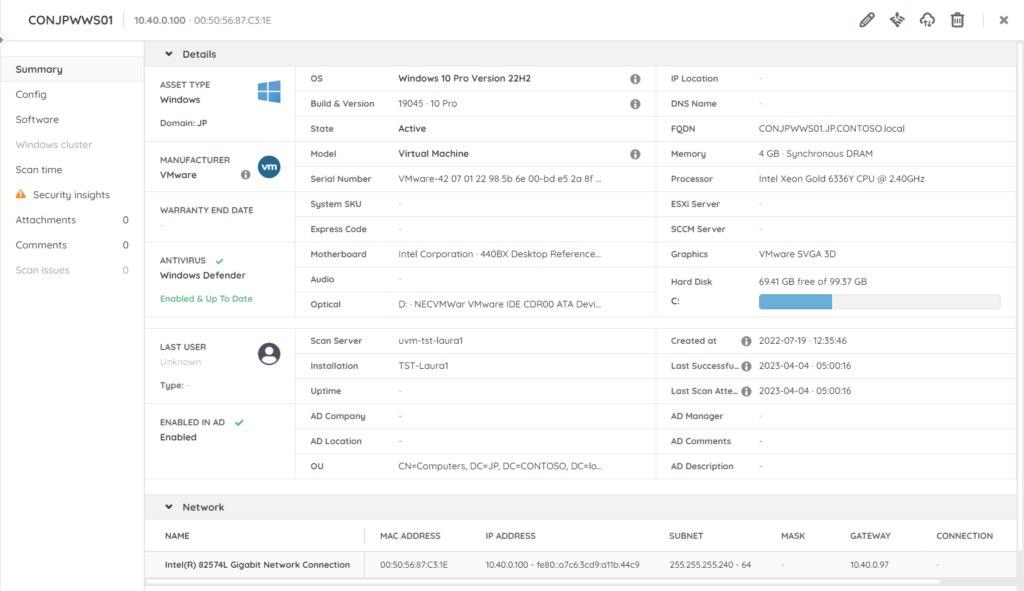
Information like hardware, software, peripherals, anti-virus, network interfaces, monitors, uptime, and event logs is included in any Lansweeper Windows computer scan. Active Directory scanning adds even more information to the broad range of data that you can retrieve. This includes Organizational Units (OU) and user information, like status, company, description, and location.
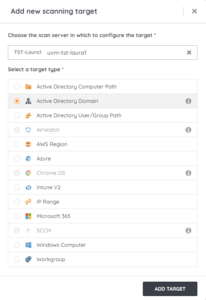
Lansweeper’s AD scanner feature automatically scans and rescans your assets. By checking for newly logged-on assets on the domain controller, Lansweeper will scan or rescan assets as they come online. Automatic scanning ensures that all your assets are kept up to date. Targeted scanning is perfect for assets that are intermittently used and might not be online during other scheduled scans.
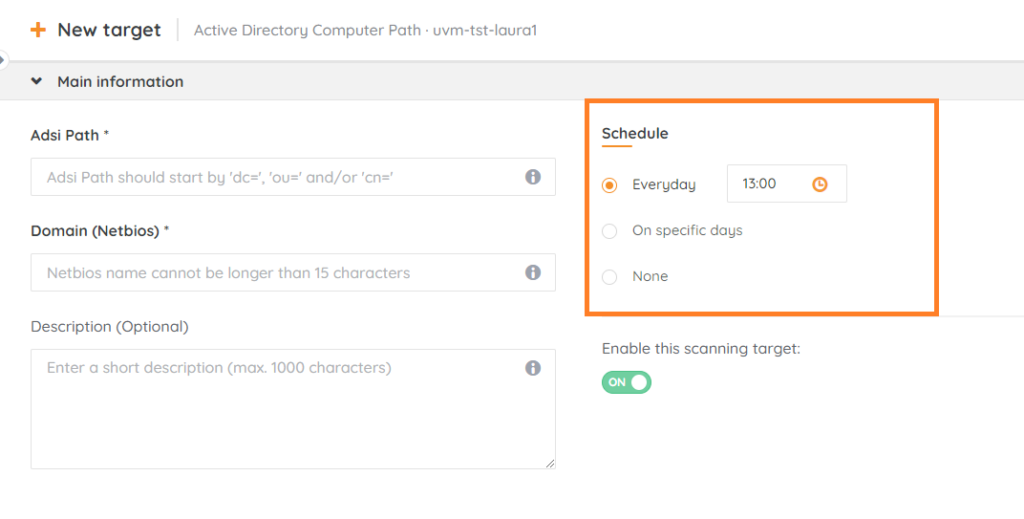
Should you prefer a scheduled Active directory scan, that is of course also an option. To do this, use the AD computer path scanning target and enter a domain, OU, or specific computer path to scan. Scheduling allows you to choose when the assets will be scanned, which is useful for load balancing. By selecting low-traffic windows of opportunity, you avoid unnecessary traffic on the network at peak moments.
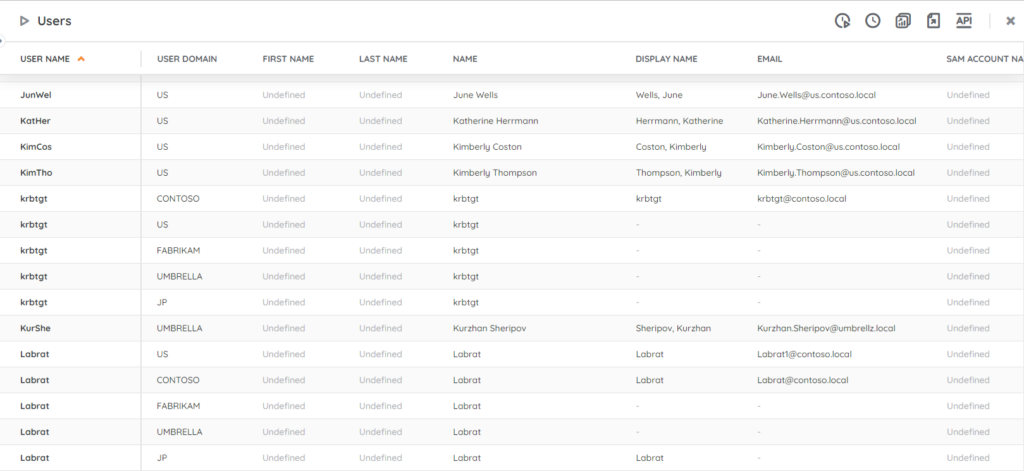
Lansweeper scans all users within a Microsoft Active Directory user path or Azure Active Directory, no matter their status. This means you can get a quick and complete overview of all AD or AAD users, groups, and their properties in seconds. Lansweeper will retrieve AD user information like status, name, phone number, email address, physical address, password expiration dates, and much more. Additionally, you can scan Active Directory group information like group name, type, and description, including the rights and permissions. Lansweeper’s scanning feature Asset Radar guarantees that this information is up to date at all times.
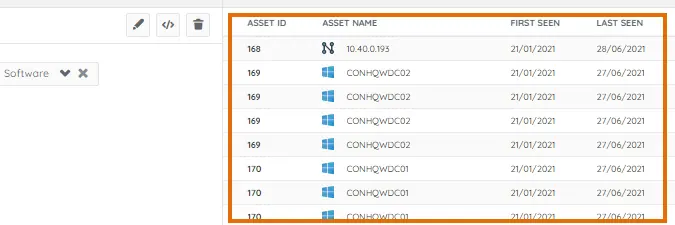
Instantly consult your Active Directory Data using Lansweeper’s built-in reporting feature. Our reports provide you with a quick and easy overview of all your computers in any specified domain or Organizational Unit. The report library gives lets you choose from over 500 pre-made reports. Can’t find the specific data you are looking for? Simply customize or build your own report in the report builder. This allows you to save valuable time by building your own personalized shortcuts to the data you need.
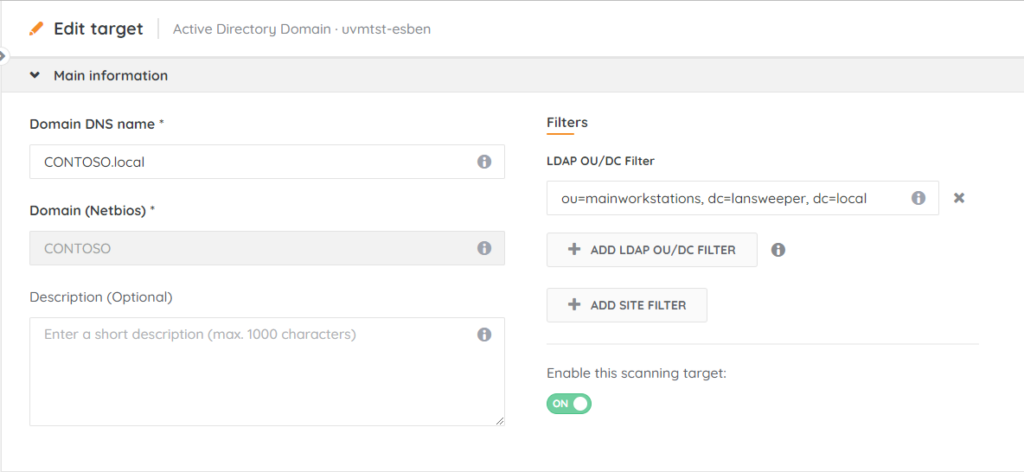
Keep an accurate representation of your ADdomain with both enabled and disabled Active Directory users and computers. Lansweeper can automatically change an asset’s state when it has been disabled. Likewise, it can remove computers and users from the Lansweeper database if they are no longer present in your domain.
This allows Lansweeper to function as an Active Directory vulnerability scanner. Devices and users that no longer belong on the domain or in the OU can be detected and removed. This minimizes vulnerability by unauthorized use of the network and the permissions granted to OUs.

Lansweeper acts as an advanced Active Directory program or domain scanner. It provides you with all the tools to execute not only a performant domain scan but also more targeted active scans. But why just read about it when you can try it out for yourself for free?
Our 30-day trial will let you discover everything Lansweeper has to offer. If you have any questions, do not hesitate to contact us.
Explora todas nuestras funciones, gratis durante 14 días.